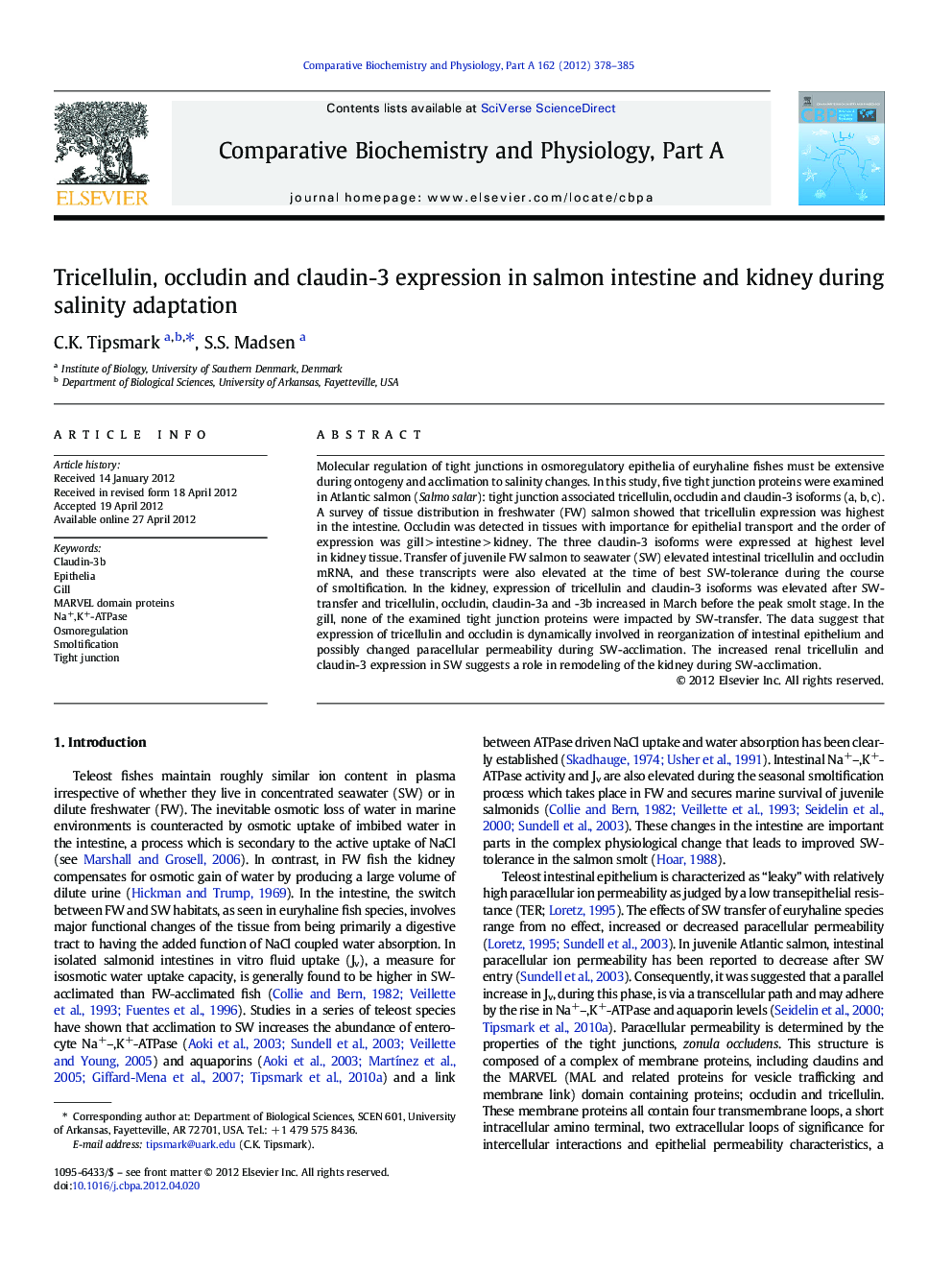| Article ID | Journal | Published Year | Pages | File Type |
|---|---|---|---|---|
| 1972618 | Comparative Biochemistry and Physiology Part A: Molecular & Integrative Physiology | 2012 | 8 Pages |
Molecular regulation of tight junctions in osmoregulatory epithelia of euryhaline fishes must be extensive during ontogeny and acclimation to salinity changes. In this study, five tight junction proteins were examined in Atlantic salmon (Salmo salar): tight junction associated tricellulin, occludin and claudin-3 isoforms (a, b, c). A survey of tissue distribution in freshwater (FW) salmon showed that tricellulin expression was highest in the intestine. Occludin was detected in tissues with importance for epithelial transport and the order of expression was gill > intestine > kidney. The three claudin-3 isoforms were expressed at highest level in kidney tissue. Transfer of juvenile FW salmon to seawater (SW) elevated intestinal tricellulin and occludin mRNA, and these transcripts were also elevated at the time of best SW-tolerance during the course of smoltification. In the kidney, expression of tricellulin and claudin-3 isoforms was elevated after SW-transfer and tricellulin, occludin, claudin-3a and -3b increased in March before the peak smolt stage. In the gill, none of the examined tight junction proteins were impacted by SW-transfer. The data suggest that expression of tricellulin and occludin is dynamically involved in reorganization of intestinal epithelium and possibly changed paracellular permeability during SW-acclimation. The increased renal tricellulin and claudin-3 expression in SW suggests a role in remodeling of the kidney during SW-acclimation.
